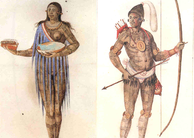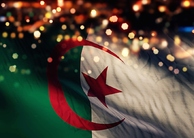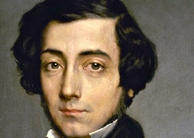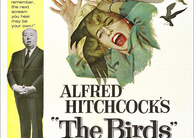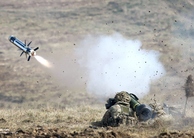|
2011 Volume 3 Issue 4
2011, Vol. 3 No. 04
The problems associated with democratic reform in the Democratic Republic of the Congo (DRC) are manifold. While the name of the country surely lends itself to an assumption of regime type, in actuality, this area has experienced great civil unrest... Read Article »
2011, Vol. 3 No. 04
Aphra Behn’s 1688 novel Oroonoko leaves many questions unanswered.[1] In one of many seeming contradictions within the text, one wonders how Behn, personally victimized by Charles II and an economic system that sought to disenfranchise her... Read Article »
2011, Vol. 3 No. 04
Following a successful war of liberation in 1962, Algeria successfully gained independence from France and an authoritarian social regime took power. The success of this government lasted into the 1980s, when Algeria's oil reserves began to decline... Read Article »
2011, Vol. 3 No. 04
When representing an idea, it is important to realize that a representation is much different from the original idea and can never fully grasp its complexities. It is also important to remember that it is impossible to not represent the concept... Read Article »
2011, Vol. 3 No. 04
The most obvious and immediate difference between Alexis de Tocqueville’s Democracy in America and Astolphe de Custine’s Letters from Russia is one of style.[1] Put simply, Tocqueville’s text is an impersonal social-scientific... Read Article »
2011, Vol. 3 No. 04
Modernism first emerged in the early twentieth century, and by the 1920s, the prominent figures of the movement – Le Corbusier, Walter Gropius, and Ludwig Mies van der Rohe - had established their reputations. However it was not until after... Read Article »
2011, Vol. 3 No. 04
Alfred Hitchcock’s first three films of the 1960s, Psycho, The Birds, and Marnie, feature alliterative blonde bombshell leads with distinctly avian qualities—Marion Crane, Melanie Daniels, and Margaret “Marnie” Edgar, respectively... Read Article »
2011, Vol. 3 No. 04
This case study asks the following question: given the symbol of the European Union as the ultimate supranational, rights-based, compliance-inducing international organization, why have member states France and Italy escaped punishment for their... Read Article »
2011, Vol. 3 No. 04
“No damn cat, and no damn cradle.” (Vonnegut 66). This quote encompasses the satiric postmodern themes of absolute truth in Vonnegut’s Cat’s Cradle. There are several significantly strong postmodern concepts Vonnegut brings... Read Article »
2011, Vol. 3 No. 04
In the Broadview Press edition of Sir Gawain and the Green Knight, editor and translator James Winny makes a concerted effort to render the original Middle English text in denotatively correct, non-alliterative modern English. In doing so, he fails... Read Article »
2011, Vol. 3 No. 04
A large portion of Robert Nozick’s Anarchy, The State and Utopia is dedicated to refuting the theories of John Rawls. Specifically, Nozick takes issue with Rawls’ conception of distributive justice as it pertains to economic inequalities... Read Article »
2011, Vol. 3 No. 04
The world in Aldous Huxley’s Brave New World has one goal: technological progress. The morals and aspirations of the society are not those of our society today - such as family, love, and success - but instead are focused around industry,... Read Article »
2011, Vol. 3 No. 04
International Humanitarian Law, based on the concepts of jus ad bello, is defined to be the law of war. This means that the laws involved are meant to be active in a situation of an armed conflict or during war. However, just like international... Read Article »
2011, Vol. 3 No. 04
Charlotte Perkins Gilman’s novella Herland explores a separatist feminist utopia. Published in 1915, Herland begins when three men – a womanizer, a Southern gentleman fixated on woman as domestic angels, and a narrator who represents... Read Article »
2011, Vol. 3 No. 04
The existence of street children is most often viewed as a significant problem, stripping youth of their humanity and burdening them with the everyday concern of survival. It is easy to analyze this complicated issue objectively, yet the actual... Read Article »
2011, Vol. 3 No. 04
The Islamic Republic of Iran today sits at the crossroads of Asia between the Middle East and Central Asia. This inherently places it in very close proximity to over half of the world's known energy reserves both in the form of petroleum and natural... Read Article »
2011, Vol. 3 No. 04
Michael Adams’ Fire and Ice and Richard Bocking’s excerpts from Water Export: The Canadian Response present two very distinct scenarios in which the relationship between Canada and the United States is played out. Fire and Ice consists... Read Article »
Issue Archives
2025 - Volume 17
2024 - Volume 16
2023 - Volume 15
2022 - Volume 14
2021 - Volume 13
2020 - Volume 12
2019 - Volume 11
2018 - Volume 10
2017 - Volume 9
2016 - Volume 8
2015 - Volume 7
2014 - Volume 6
2013 - Volume 5
2012 - Volume 4
2011 - Volume 3
2010 - Volume 2
2009 - Volume 1
|

